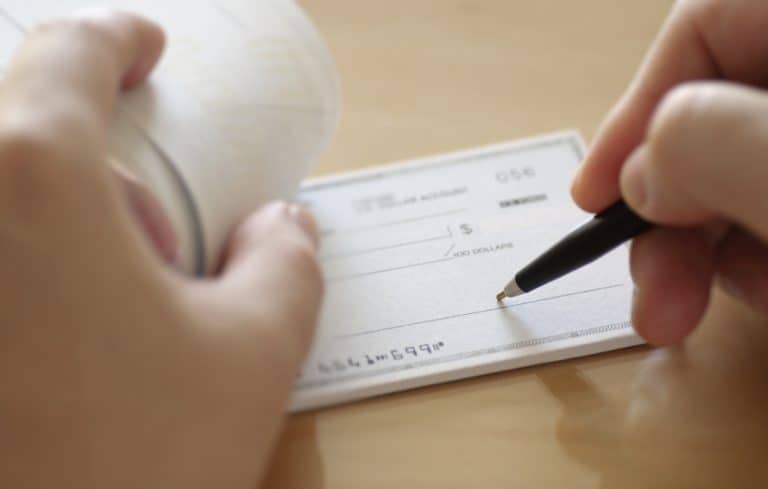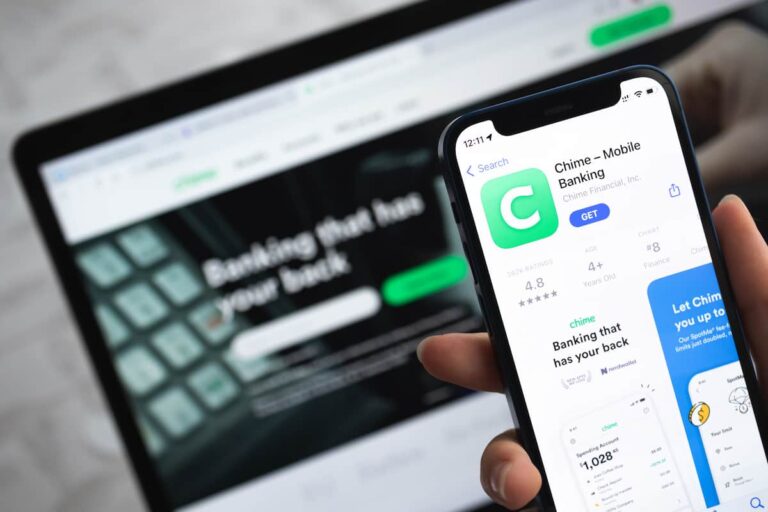Our homes carry important memories, and when children grow up, they often want to preserve the space for generations to come through ownership.
So, you may be wondering, “Can I buy my parents’ house for what they owe?”
The answer is yes – you can purchase the property for the amount of money that is still owed on the mortgage.
In this article, I’ll discuss how to go about buying your parents’ house in a short sale. We will also cover some of the benefits and drawbacks of this process.

Can I buy my parents’ house for what they owe?
Yes, you can buy your parents’ house for the outstanding balance on the mortgage if they give you a gift of equity. An equity gift is a gift of money or property that is given to someone with the intent of reducing the amount of money that they owe on a loan or mortgage.
When you give someone an equity gift, you are essentially giving them a portion of the ownership in your home. This can be a great way to help a loved one purchase their own home, or to reduce the amount of money that they owe on a mortgage.
It is important to note that there are some potential drawbacks to giving an equity gift. For example, if the person who receives the gift does not repay the debt, the lender comes after the giver for repayment. Additionally, if the property is sold within a few years of receiving the gift, the IRS may consider it to be taxable income.
However, in general, giving an equity gift can be a great way to help a loved one purchase their own home. And if your parents are looking to sell, it could be beneficial for everyone involved.

Do I pay tax if I buy my parents’ house?
If you purchase the home while they are still alive, you may have to pay capital gains taxes on any profit made from the sale. If they have passed away, it may be possible to avoid these taxes. If the home was an equity gift, there will be an amount that’s tax-exempt depending on the state.
Anyone who gifts property worth more than $16,000 in a year must file a gift tax form. The lifetime gift tax exclusion amount is currently $12.06 million.
If your house is valued at less than $12.06 million, you probably won’t have to pay gift taxes, but you will still need to file a government gift tax form.
Can I buy a share of my parents’ house?
In order to purchase a share in your parents’ house, you either need to come up with the cash for whatever percentage they are selling, or get their lender’s approval to be put on the mortgage. A solicitor can help you with a “transfer of equity” so that your name is on the title as a joint owner.
This is a good idea if you want to invest in property but don’t have the funds to purchase a home outright. It can also be beneficial if you want to help your parents with their mortgage payments and you both want to own a share of the house.
You may also be interested in: Is Renting a Waste of Money? (20 Pros and Cons)
Can a child assume a parent’s mortgage?
According to federal law, if a family member inherits property, the lenders must let that person assume the mortgage. An inheritor is not required to keep the mortgage. The options are to pay off the debt, refinance the property, or even sell the property.
Outside or inheritance situations, if your mortgage terms state that the loan is “assumable,” you can transfer the outstanding balance to another person.
An assumable mortgage allows the new buyer to pay a fee to take over the mortgage, and assume responsibility for monthly payments. In order to qualify for the loan with your lender, you’ll still need to meet their requirements.

How much does it cost to take someone off a mortgage?
One of the best ways to remove someone from a mortgage is by refinancing it. There are closing costs associated with this process that will cost you anywhere between 2 to 5 percent of the total loan amount. So if you have a larger loan, the costs to refinance it could be substantial.
However, there are ways to save money by refinancing a home, such as taking advantage of lower interest rates or getting cash-out options.
If you can get a lower rate, it may be worth the cost to refinance and take someone off the mortgage at the same time.
Related: What’s Next in Life After Your Mortgage is Paid Off?
Can I buy my parents’ house as an investment property?
Yes, you can purchase a home from your parents as an investment property. This is a great way to build wealth and generate passive income. You’d be responsible for the mortgage payments and any other expenses associated with owning the property.
It’s important to do research on the local real estate market before making this kind of investment so you know what you’re getting into. Lenders will also assess your finances to make sure you can qualify for the loan and afford the payments alongside rental income.
You could rent out the home to others, set it up as a vacation rental, rent it back to your parents, or even fix up the home and flip it to earn profit.
Can I buy my mother’s house and rent it back to her?
Yes, you can purchase your mother’s house and rent it back to her. You’d be responsible for the mortgage payments, taxes, and upkeep of the home. She’d pay you a set amount in rent each month which could include utilities if agreed upon.
This is a great way to keep your parents in their home without putting any financial strain on them.
There are, however, a few things to consider before doing this. These include making sure all parties understand the agreement, the rental rate is fair and can cover your payments, and that you’ll have a plan for when your parents no longer need the home.
You may also be interested in: 12 Expenses When Renting You Need to Prepare For
Can I buy my parents’ house and let them live in it?
Yes, you can buy your parents’ house and let them live in it. This is an arrangement that many families make to keep elderly relatives living in their own home while also providing financial support. You would usually be responsible for managing the home financially and physically.
This can be great for giving your parents a big break if they’re done managing the property.
Can I buy my parents’ house for less than it’s worth?
Yes, you can buy your parents’ house for less than it’s worth, but there are certain risks involved. Depending on your family’s situation, the tax burdens and sale prerequisites may vary. You should consult with an attorney before moving forward.
After all, while your parents can sell you their house below market value, you don’t want to be blindsided by negative consequences or complicated laws.
By getting legal advice, all sides are represented accurately and will be fully informed of what’s involved.
Can I buy my parents’ house for $1?
Yes, if you sell your house under market value to a family member for $1, it is legally the same as selling the house at fair market value. The giftee may now do whatever they please with the home, whether or not their parents continue to reside inside of it.
What happens if I sell the property I received for $1 from my parents?
If you sell the property for more than $1, you may owe capital gains taxes on the difference. Your tax basis will be the amount you paid for the home, which in this case is $1. The rest of the money you receive from the sale will be taxable as capital gains.
In order to avoid capital gains tax on a home that you’ve received for $1 is by living in or owning the property for a minimum of 2 years. The IRS would then let you exclude $250k of your capital gain or $500k for couples that are married and jointly filing taxes, which would greatly reduce or eliminate the overall tax bill.

What if the value of my parents’ home has decreased since they gifted it?
If this occurred, you would not be able to claim a loss from the sale of the property. According to the IRS, your gains or losses would be what you paid for the home. If it was a gift, however, then you wouldn’t have any losses.
How do you buy someone off a mortgage?
Buying someone off a mortgage can be done in two different ways. First, you can refinance the loan and take them off of it at the same time. Second, they could deed their portion of the property to you and transfer their share of the loan to you as well.
You’ll need to contact your lender to see what options are available and decide which route will best suit your needs.
It’s important to understand that buying someone off a mortgage is going to cost money. So if you can afford the additional fees, and it fits with your financial goals and budget, it can be a great way to gain ownership of a property without having to pay the full amount.

The process of refinancing to buy someone off a mortgage involves different steps, such as applying for a new loan and providing documents to prove your creditworthiness. Additionally, you may have to pay off the remaining balance on their loan with cash or assets.
If they deed their portion of the property to you, they’ll also need to transfer their loan obligation to you. This would involve signing a new promissory note and other documents that are necessary for the lender to approve your loan application.
What is the simplest way to transfer property between family members?
The simplest and least expensive way to transfer property between family members is through a quitclaim deed. This document allows one party to transfer their interest in a piece of real estate to another without making any warranties or guarantees about the status of the ownership of that property.
The owner signing the quitclaim deed would simply sign over all rights, title, and interest in the property to the family member.
It’s important to note that while this method is simple, it doesn’t guarantee that all liens and mortgages attached to the property go away when ownership transfers.

As such, you should always consult with a real estate attorney before transferring any kind of property between family members to make sure that all legal requirements are met and that all parties involved understand the process.
Overall, though, you usually don’t need to consider any creative ways to buy your parents’ house as this tends to be the most straightforward method.
Should I buy my parent’s house in order to avoid inheritance tax?
While you can always do this, inheritance tax is usually not a concern when it comes to purchasing a property from your parents, since there isn’t a federal inheritance tax and 44 of the 50 states don’t honor inheritance tax.
These states are Pennsylvania, New Jersey, Nebraska, Maryland, Iowa, and Kentucky. If you don’t reside in any of these locations, then it’s not really necessary to purchase your parents’ home in order to avoid tax repercussions.
Instead, you should focus on whether it makes financial sense for you to purchase their home or not at the current time, since there may be tax consequences of buying your parents’ house before you inherit it.
You’ll need to consider the cost of buying, maintaining, and selling the property, as well as any taxes or other expenses associated with it.
What happens if I’m buying a house from a family member that is not paid off?
If the house is not paid off and you plan to buy out your parents’ mortgage, you will need to take on the remaining balance of the loan. This means that in addition to buying the property, you will also be taking over responsibility for paying back any remaining amount owed on the mortgage.





